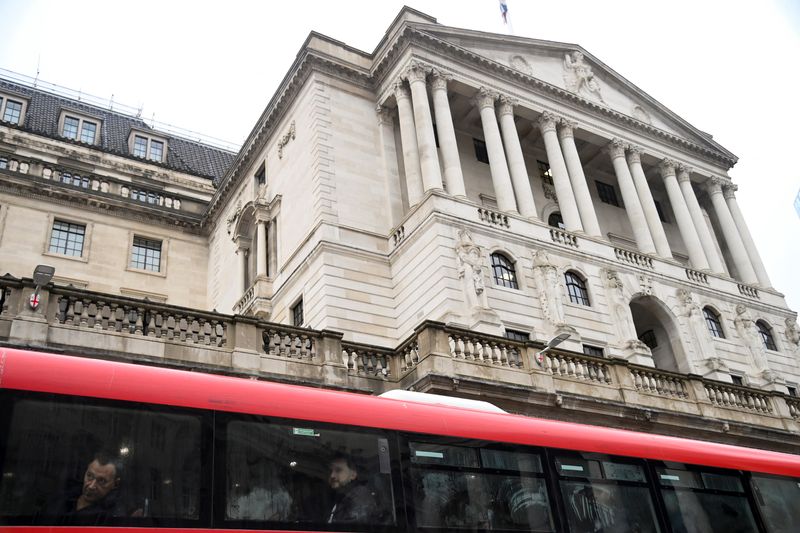By David Milliken
LONDON (Reuters) -The Bank of England may have to keep interest rates high for an extended period if inflation pressures persist, and it was right to raise them by half a percentage point last month, the International Monetary Fund's directors said on Tuesday.
British inflation was the highest of any major economy in May at 8.7%, and financial markets have priced in increasingly high peaks for BoE rates as wage and price data have come in hotter than expected in recent months.
Markets see a roughly 50% chance that BoE rates will peak at 6.5% early next year, up from 5% now - a greater degree of tightening than is expected for the U.S. Federal Reserve or the European Central Bank.
"A continuous review of the pace and magnitude of monetary tightening is warranted," IMF directors said after an annual review of Britain's economy.
"Should inflationary pressures show signs of further persistence, the policy rate may have to be raised further and would need to remain higher for longer to durably lower inflation and keep inflation expectations anchored."
BoE Governor Andrew Bailey on Monday vowed to "see the job through" on returning inflation to its 2% target.
The IMF's latest comment is similar to language by staff in a preliminary version of its annual report on the British economy in May.
The agency also repeated the forecast it made in May that Britain would avoid recession this year and that the economy would grow by 0.4%.
Inflation will slow to "around 5.25%" by the end of the year, it said. May's forecast said inflation at the end of 2023 would be "around 5%". Both forecasts suggested inflation would be below the BoE's 2% target by the middle of 2025.

The IMF's directors discouraged finance minister Jeremy Hunt from spending any unexpected fiscal windfalls.
Instead, Britain should raise more money over the medium term from carbon and property taxes, and by removing loopholes in wealth and income taxation, in order to fund public services better and stop government debt rising, they said.